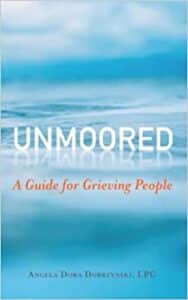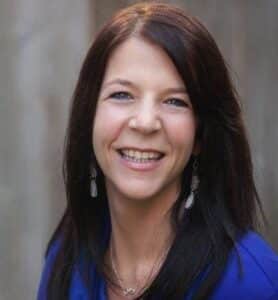Navigating the Layers of Loss: Coping Strategies for Seniors and Baby Boomers

As we age, the inevitability of loss becomes a more frequent visitor in our lives. For seniors and baby boomers, the accumulation of losses—whether they be the death of loved ones, retirement, relocation, changes in relationships, or declining health—can compound, creating a heavy burden that can be challenging to bear. This phenomenon, known as compound loss, can lead to profound grief and a sense of being overwhelmed.
Living longer does afford the opportunity to experience more of life’s joys, but it also means witnessing the passing of contemporaries, including friends, family, and public figures who have been part of one’s life narrative. The question then arises: how do we handle this accumulation of loss?
Understanding Compound Loss
Compound loss is the layering of grief upon grief, where each new loss reignites the pain of past losses. It’s a unique challenge for seniors and baby boomers who find themselves facing multiple bereavements within a short period. This can lead to a deep sense of sorrow and isolation, as the support network that once provided comfort may itself be diminishing.
5 Strategies for Coping with Compound Loss
1. Seek Professional Support: Engaging with a therapist or counselor who specializes in grief can provide a safe space to process the complex emotions associated with compound loss. They can offer strategies tailored to individual needs and help navigate the journey of healing.
2. Expand Social Networks: Building new connections can be a lifeline during times of loss. Joining clubs, groups, or activities can open doors to new friendships and support systems. It’s never too late to forge meaningful relationships that can bring joy and companionship. And you may find people with similar or shared experiences with loss that you can converse with and support.
3. Embrace Online Resources: The digital age offers a plethora of resources for those dealing with grief. From online support groups to educational materials, the internet can be a valuable tool for finding support and understanding.
educational materials, the internet can be a valuable tool for finding support and understanding.
4. Cultivate Mindfulness and Self-Care: Practices such as meditation, journaling, or simply taking time for oneself can be powerful in managing grief. Mindfulness can help one stay grounded in the present, reducing the overwhelming impact of compounded losses.
5. Honor Memories: Creating rituals or dedicating time to remember those lost can provide comfort. This might involve visiting places of significance, looking through photo albums, or sharing stories with others. In addition, it can include volunteering for an organization that may have had special meaning to a person or career that has been lost to you. Giving back to the community can provide a sense of purpose and connection. And therefore, volunteering can also be a way to honor the memory of a loved one.
The Path Forward in Grief
Dealing with compound loss is a deeply personal journey, and there is no one-size-fits-all solution. It’s important to acknowledge the pain, give oneself permission to grieve, and take steps towards healing in a way that feels right for the individual. By exploring these strategies, seniors and baby boomers can find ways to cope with the layers of loss and move forward with resilience and hope.
Remember, it’s okay to seek help, and it’s okay to take the time needed to grieve. You are not alone.
Another Resource — Self-Help Books
 For some people, reading about other people’s experiences of finding interesting self-help books can be helpful. One good example of this is: “Unmoored: A Guide for Grieving People.” This book was written by Licensed Professional Counselor and Certified Grief Counseling Specialist, Angela Dora Dobrzynski, LPC. This book may help you ride the waves of grief and take those first tentative steps forward.
For some people, reading about other people’s experiences of finding interesting self-help books can be helpful. One good example of this is: “Unmoored: A Guide for Grieving People.” This book was written by Licensed Professional Counselor and Certified Grief Counseling Specialist, Angela Dora Dobrzynski, LPC. This book may help you ride the waves of grief and take those first tentative steps forward.
 Angela Dora Dobrzynski has a private practice in Downingtown, PA where she specializes in grief and non-death losses, as well as significant life transitions.
Angela Dora Dobrzynski has a private practice in Downingtown, PA where she specializes in grief and non-death losses, as well as significant life transitions.
Her approach draws from stress and health psychology, holistic health coaching, solutions-focused treatment, strengths-based philosophy, EMDR, and Cognitive Behavioral interventions. She holds a Master’s degree in Counseling Psychology from Rosemont College and a Bachelor’s degree in Psychology from Stockton University. Visit her website at www.angeladora.org
Grieving can be caused by loss of something dear and important in one’s life – like the loss of a loved one or moving from your family home. Friends Life Care appreciates this post about grief and aging, written for the eMeetinghouse blog. Friends Life Care is a mission-driven nonprofit that has been helping older adults to thrive at home as they age. Connect with us if you have questions for one of Friends Life Care’s Plan Counselors on joining. Or, if you are a member, for your Wellness or Care Coordinator. We’d love to hear your comments.
